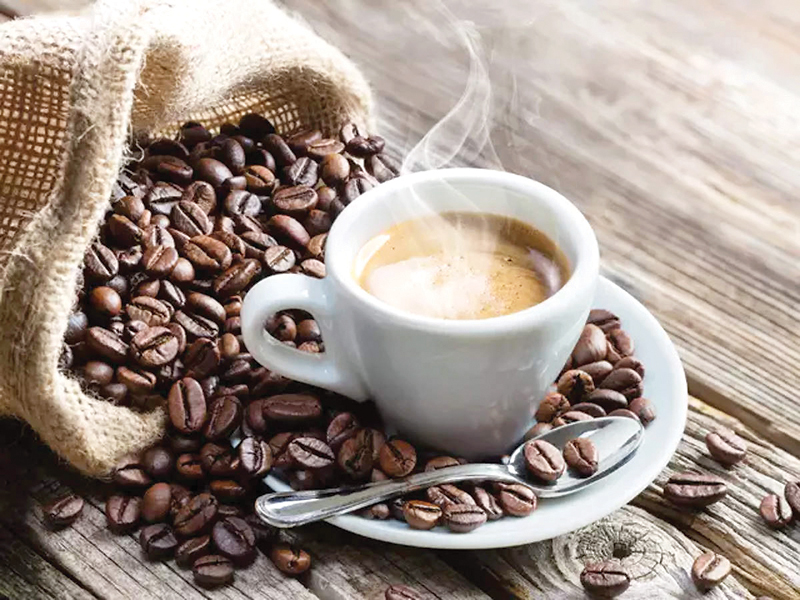

Ali Kucukgocmen -
Businessmen in the Nigerian city of Lagos typically broker deals over cognac or champagne. But, on a sunny afternoon in the city’s upmarket Victoria Island business district, a clutch of men celebrated with steaming coffee that cost 35,000 naira ($114) for a three-cup brew.
Jamaica Blue Mountain, the gourmet variety they imbibed, is coveted around the world for its superior quality.
Ibrahim Samande, owner of the Mai Shayi Coffee cafe that sold the drink, knows not everyone can afford the splurge. But he believes cachet and ceremony, and attractive spaces to enjoy a cup, will lure more of Nigeria’s 200 million people to drink coffee.
At present, Nigerians drink only a tiny amount of coffee. Tea or cocoa are the hot drinks of choice, and are forecast to account for close to 40% of Nigeria’s nonalcoholic drink spending by 2023, according to research body Fitch Solutions. By contrast, spending on coffee is seen only at 2.5 per cent.
Samande is among a new breed of entrepreneurs hoping to cash in on coffee. They are betting that wealthy Nigerians will cultivate a cafe culture that can also spur consumption of locally grown crops.
“Nigeria is a very aspirational society,” Samande said. “And it’s very easy for things to catch on.”
Consumption is rising; the retail value of coffee sold has nearly tripled since 2010 to $29 million last year, according to Euromonitor.
But it is still a market in its infancy. Kenya, with a quarter the number of people as Nigeria, consumes close to the same amount of coffee, and spent $11 million more on the drink last year. Meanwhile South Africa consumed more than six times as much coffee as Nigeria and spent 9 times as much.
In a country where the majority live on less than $2 a day, most Nigerian coffee-drinkers opt for bitter cups of instant coffee that street vendors hawk for 100 naira, just a few cents.
International coffee shop chains have yet to enter the country significantly, although there are a few domestic chains. Nigeria’s Cafe Neo has several locations in Lagos, and Happy Coffee also aims to bring coffee to the masses.
Samande, whose grandmother roasted her own beans with cardamom and ginger, believes that brewing with imported Italian Moka pots, Japanese siphons and American Chemex coffeemakers can convince Nigerians to drink higher-quality coffee.
Coffee is one of the world’s most-traded commodities, he said. “I think there’s room for us to plug into that sort of supply chain.”
He buys Nigerian beans from Kim’s Coffee, a roaster around 1,000 kilometres (621.37 miles) to the north of Lagos. Kim’s founder David Dayi said strong demand saw them roast 3 tonnes of locally grown coffee last year - triple the 2017 level.
Dayi said Nigeria could easily grow more coffee — and that local consumption could help spur this.
Dr Nasra Ali, a Kenyan who founded Lagos-based Kaldi Coffee Ltd in 2014, said luring Nigerians who had only tasted bitter instant coffee was tough.
Ali, who grew up on a Kenyan coffee farm, focuses on selling high-quality beans and serving them correctly.
Kaldi buys Nigerian beans from the eastern state of Taraba. It also trains baristas and sells grinders and espresso machines. Its roastery capacity has grown from 10 tonnes in 2016 to 50 tonnes today.
“It’s a gradual, steady growth every year,” she said. “More and more young Nigerians appreciate the benefits of coffee and the different ways that it can be consumed.” —Reuters
Oman Observer is now on the WhatsApp channel. Click here



